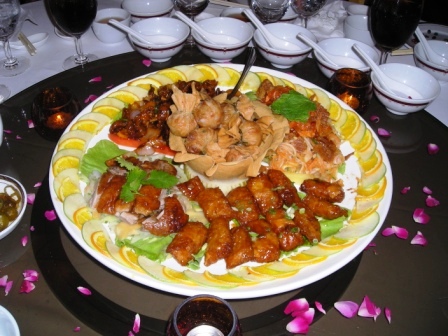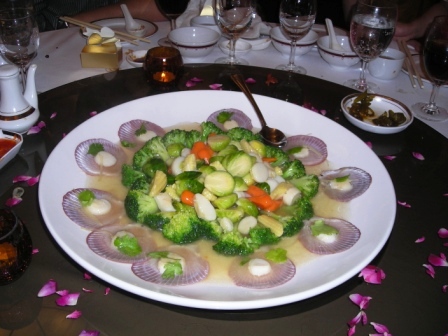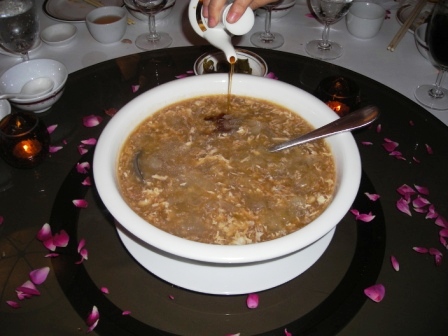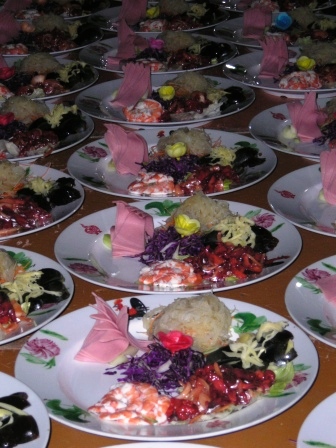
| Home | Chinatowns of the world | Festivals | Culture | Food Culture | History | Countries |
| Chinese Religion | Tours | Sitemap | Documentaries | About | Contact |
Chinese banquets, 宴会Chinese banquets, 宴会, are organized to celebrate or to commemorate important or socially significant events. The most well known is the wedding banquets, 婚宴, but other reasons for banquets include birthdays, 寿宴, wedding anniversaries, birth of a new born child, 满月酒, anniversaries of institutions such as temples or clan associations, 庆宴, religious celebrations especially during birthdays of deities and during the Hungry Ghost Festival as well as corporate events. If most of the guests are vegetarians, the host may offer a vegetarian banquet, 素宴. Chinese banquets are communal in nature. The host occupies the VIP table while guests are assign seats at round tables that can accommodate between 8 to 12 guests. Assigning seats is an art, as host will try to group family members, friends, business associates who are known to each other in the same table as well as to take care not to place known “enemies” next to each other to avoid embarrassing developments especially if liquor is served. If very important or prominent guests are invited, the host may even arrange lion dance performance to welcome the VIP. Guests attending banquets, especially a wedding or birthday, usually bring a gift, the most common and practical being cash presented in a red packet with the name of the guest written on the red packet. A typical banquet has 8 to 10 courses beginning with a cold dish and ending with a dessert. If it is a wedding banquet, guests are presented with a small wedding cake. In a birthday banquet, guests are served a longevity peach, 寿桃. Each dish is placed at the centre of the table and is shared by guests seated at that table. For hygiene reasons, a common spoon, fork, or chopstick is used to bring food to individual plates. Chinese tea, wine, water, soft drinks, and liquor are served through out the banquet. One common dish during a banquet is the shark's fin soup. Its popularity may drive sharks to extinction and lobby groups are encouraging consumers to stop ordering the dish. Special arrangements such as vegetarian, kosher, or Halal food are also made for guest with special dietary requirements. These guests share the same table but their food is served separately. This arrangement ensures that the social dimension of a banquet is not affected by dietary considerations. It also highlights the importance and even objective of banquets as a social mechanism to bring people together to celebrate an event. Hotel and restaurants have a wide range of banquet packages to suit customer’s needs and budget and there are also caterers for outdoor events. Menus are often designed around a specific theme with auspicious names for each dish. Chinese banquets apart from addressing basic biological needs, functions as a mechanism to mark social or individual events, achieve social solidarity and for renewal of social relations.
Related articles:
|
|
| Join us on | Youtube | |||
| Copyright © 2007-24 Chinatownology, All Rights Reserved. | ||||



